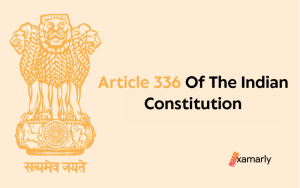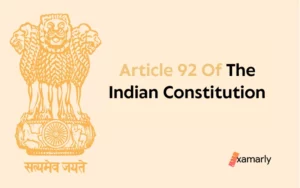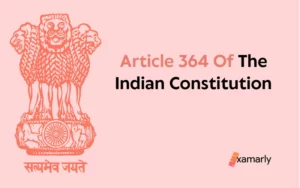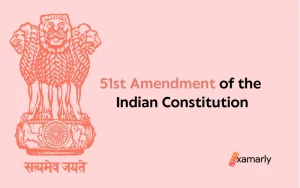Anthropology optional for UPSC CSE has become a popular choice among aspirants with time. Engineering & Science students prefer it as their optional subject as it is an interesting and a scoring subject by many.
It consists of different areas like the study of humans and their biological, social, and cultural aspects. The subject depicts the diversity of India as it focuses on the different Indian tribes, their social change and development.
UPSC is tough but selecting the right optional can work wonders in cracking it. This optional paper will be of a descriptive type. The optional paper is divided into 2 papers with 250 marks on each paper.
This optional for UPSC has many advantages and disadvantages which are important to know when deciding if it’s right for you. If you’re interested in it or are already studying it, this guide will walk you through its pros and cons. On the way, providing you tips to help you decide if it’s the right subject for you.
In this article, we’ll also discuss the best books for anthropology optional for UPSC.
- Selecting Anthropology Optional for the UPSC Exam
- Advantages of Choosing Anthropology as Optional for UPSC
- Disadvantages of Choosing Anthropology as Optional
- Anthropology Optional in UPSC – Success Rate
- Strategies to Ace Anthropology Optional for UPSC
- Anthropology Optional Syllabus for UPSC Civil Services Examination
- Anthropology Books for UPSC
- Conclusion
- FAQs around Anthropology Optional for UPSC
Selecting Anthropology Optional for the UPSC Exam
Anthropology is a cross-disciplinary subject dealing with human behavior, culture, language, and thought. Its purpose is to understand humankind better by studying their social structures, cultural practices, and other aspects like religion and politics.
This, as one of the optional subjects in UPSC, has many advantages and disadvantages which are important to know when deciding if it’s right for you.
Advantages of Choosing Anthropology as Optional for UPSC
- Anthropology optional for UPSC is considered a very interesting and easy subject to write in the exam when compared to other subjects as the questions asked are mostly direct and factual.
- Taking this as your optional subject gives you an edge over others. Everybody living in this society has some sort of experience related to the culture, issues, policies, remedies, and sections of society. Hence, it becomes easy to tackle any of the questions asked in the examination coming from any topic given in the syllabus.
- Along with the facts, one can add his/her insights very easily in the examination provided you don’t get too emotional while writing any answer.
- In comparison to other humanities subjects, it is very scoring due to its scientific nature. Answers can be made more appealing with the help of diagrams and flowcharts.
- Science and engineering students find it easy to crack. It proves to be a good option for such students as it is a mixture of science, art, and culture.
- It is a subject that creates curiosity among its readers and learners and an aspirant can easily develop a subjective approach to the subject by interrelating different aspects of science, biology, Human origin, and their culture. This optional for UPSC requires a subjective approach.
- The most important feature of this optional is that you can easily find a relationship with different areas of study. Various topics like society and social justice or Welfare of weaker sections of society will be covered under the Tribal Development topic which is also part of the GS-1 and GS-2 papers.
- This optional for UPSC covers Internal security challenges and topics of Biotechnology.
- Various answers to current events can be written with the help of facts and topics like the Cow slaughter ban, Social stigmas, and social controls. Writing an answer in the light of Anthropology can fetch you a good score.
- This optional’s syllabus can help you in Ethics and Essay papers also. The dimension of Tribal issues can be best handled while writing an answer for your UPSC CSE Essay paper with the help of it.
If you’re confused about selecting an optional for UPSC, our blog on How To Select Optional Subject For UPSC Exam will be super useful.
Disadvantages of Choosing Anthropology as Optional
If you are considering this optional for UPSC, you might be wondering what is the drawback of this subject. Some of the disadvantages of choosing it as an optional are listed below:
- Studying it at your own pace would take up a lot of time.
- Memorization is less important in this subject than it is for many other subjects because conceptual understanding is key. In other words, for this subject, students need to know the concepts rather than rote memorization; many students find that to be a struggle.
- Assistance is limited, because of the lack of books and study material for UPSC and help for exam preparation point of view.
Anthropology Optional in UPSC – Success Rate
The number of Anthropology applicants for the IAS is small, but their success rate is great. You are bound to get good marks in this subject if you try it out. Amongst all those toppers, many had this as an optional subject. The success rate is around 10% – 12%.
As every coin has two sides, so does this subject: it has pros and cons. But despite the cons, the pros outweigh them, so it is a very viable option for people who want to do well on the UPSC exam. Students choosing this optional will benefit in prelims exam as well because of its overlap with General Studies in prelims exam as well as mains exam.
Strategies to Ace Anthropology Optional for UPSC
Below is the UPSC preparation strategy for this optional for UPSC CSE 2022 is discussed:
- First, go through your UPSC syllabus. This is the key to your success in this examination. To get an idea of important topics, what to read and leave, and understand the complexity of the exam, it is very important to go through your prescribed UPSC CSE syllabus.
- Questions asked in this optional are direct, still, it is very important to grasp the factual and dynamic content also. Focus on conceptual clarity.
- Inter-relating various chapters prescribed in the syllabus increases your writing and critical thinking skills for the UPSC examination.
- A very important task is to divide the syllabus into smaller sections. Paper I comprises Social-Cultural & Biological Anthropology. Paper-II consists of Indian Society and Tribal India.
- Flow charts and diagrams are mandatory when it comes to writing a better and a skillful answer. Practice diagrams again and again at least 3 to 4 months before the examination. Note-making is important in this case and should be given adequate time. It will also develop your answer writing skills.
- People new to the subject should pursue as many previous years’ question papers to expedite the process of getting familiar with the subject.
Having this kind of efficient strategy and a study plan can help you with your preparation and will greatly benefit your exam preparation.
Case studies strategies:
- Including as many case studies in your answer writing can be beneficial for you. Case studies on different issues, situations, and topics keep a very important place. It will not only help you in the optional’s answer writing but in the Essay and Ethics section also.
- For example, Case studies on the Criminal Tribes Act can be included while writing the answer based on the question of cultural relativism.
- The question of the impact of industrialization on STs in Jharkhand can be answered with the help of a case study based on the Tribal Research Institute in Ranchi.
- You can collect different case studies from sources like The Hindu newspaper, the XAXA committee report, or the Economic and Political weekly.
A few important topics for the case studies are :
- Land severance, poverty & debt, illiteracy, unemployment, health, and nutrition are among the issues facing tribal communities.
- Socio-economic & political rank of minorities- religious & linguistic.
- Impact of development projects on tribal displacement. Development of forest policy and tribal relations. Effects of urbanisation on indigenous populations and territories.
- Panchayati Raj and social change; Media and social change, history of administration.
- Issues with SC, ST, and OBC exploitation and deprivation. Constitutional safeguards for STs and SCs.
- The concept of ethnicity; Ethnic conflicts and political developments; Unrest among tribal communities; Regionalism and demand for autonomy; Pseudo-tribalism; Social change among the tribes during colonial and post-Independent India.
- Modern democratic institutions, development programmes, and welfare measures have had an effect on tribal communities and the weaker parts of society.
Anthropology Optional Syllabus for UPSC Civil Services Examination
According to the Anthropology Optional Syllabus for UPSC, there are two papers for optional and both the papers are worth a total of 250 marks, bringing the total optional marks to 500. Check the syllabus and exam pattern for UPSC Civil Services Exam.
Anthropology Books for UPSC
The list of books for your UPSC preparation are listed below:
Anthropology Books for UPSC Paper 1
- Introducing Sociology NCERT Class XI.
- Measuring Time (Chapter 2) of Indian Prehistory – D.K Bhattacharya.
- Anthropological Theories –Makhan Jha.
- Biology NCERT book For Class Xll (Chapter 5, 6, 7).
- Biology NCERT Class XII.
- IGNOU MA Course for Anthropology.
- An Introduction to Socio-Cultural Anthropology –N.K Vaid.
- Physical Anthropology -P. Nath.
- An Introduction to Social Anthropology –D.N. Majumdar and T.N. Madan (for basic understating of Anthropology).
Anthropology Books for UPSC Paper 2
- Indian Anthropology -Nadeem Hasnain.
- Indian Society –NCERT Class XII.
- Indian Society –NCERT Class XII.
- Tribal India –Nadeem Hasnain.
- The Tribal Culture of India –LP Vidyarthi.
- A revised version of Yojana from January 2014, focused on tribal and marginalized communities.
- History of Anthropology Thought by Gaya Pandey & Vijay S Upadhyay.
- Xaxa Report.
- Anthropology Simplified -Vivek Bhasme.
Related Articles:
Conclusion
One should choose the optional subject that best complements the paper pattern of the examination and aligns with the syllabus for best results. Use our list of books for UPSC and choose the ones relevant to your preparation. We hope we cleared some of your doubts around preparation for this optional for UPSC.
If you’re still confused, have a look at these articles:
FAQs around Anthropology Optional for UPSC
How to Prepare for the Exam from Anthropology Books for UPSC?
Some tips are mentioned below:
1) Don’t rush to complete the syllabus quickly but focus on building your knowledge around key concepts if you are new to it.
2) Don’t try and read each one of the available books from cover to cover for UPSC, but refer to the syllabus and complete the relevant topics.
3) Try and make to-the-point comprehensive notes as they’ll be your go-to tool while doing revision.
What is the scope of Anthropology as an optional subject for UPSC?
As an optional subject for UPSC, it covers various subfields of anthropology including social, cultural, physical and archaeological, along with related topics like human evolution, human ecology and socio-cultural development.
What are the important topics in Anthropology for UPSC?
The important topics for UPSC include human evolution, cultural anthropology, social organization, marriage and family, economic and political systems, religion, and ecology.
Is Anthropology Optional scoring for UPSC?
Anthropology Optional is considered a scoring subject for UPSC, as long as you are able to understand and apply the concepts effectively. The questions asked in the exam are mostly application-based, making it a good option for those who have a strong grip on the subject and its related topics.
What are the best books for preparing Anthropology for UPSC?
The best books for preparing Anthropology for UPSC include “Social Anthropology” by N.K. Dhar, “Cultural Anthropology” by Barbara Miller, “Introduction to Physical Anthropology” by Robert Jurmain, and “An Introduction to Indian Archaeology” by Dilip K. Chakrabarti.






